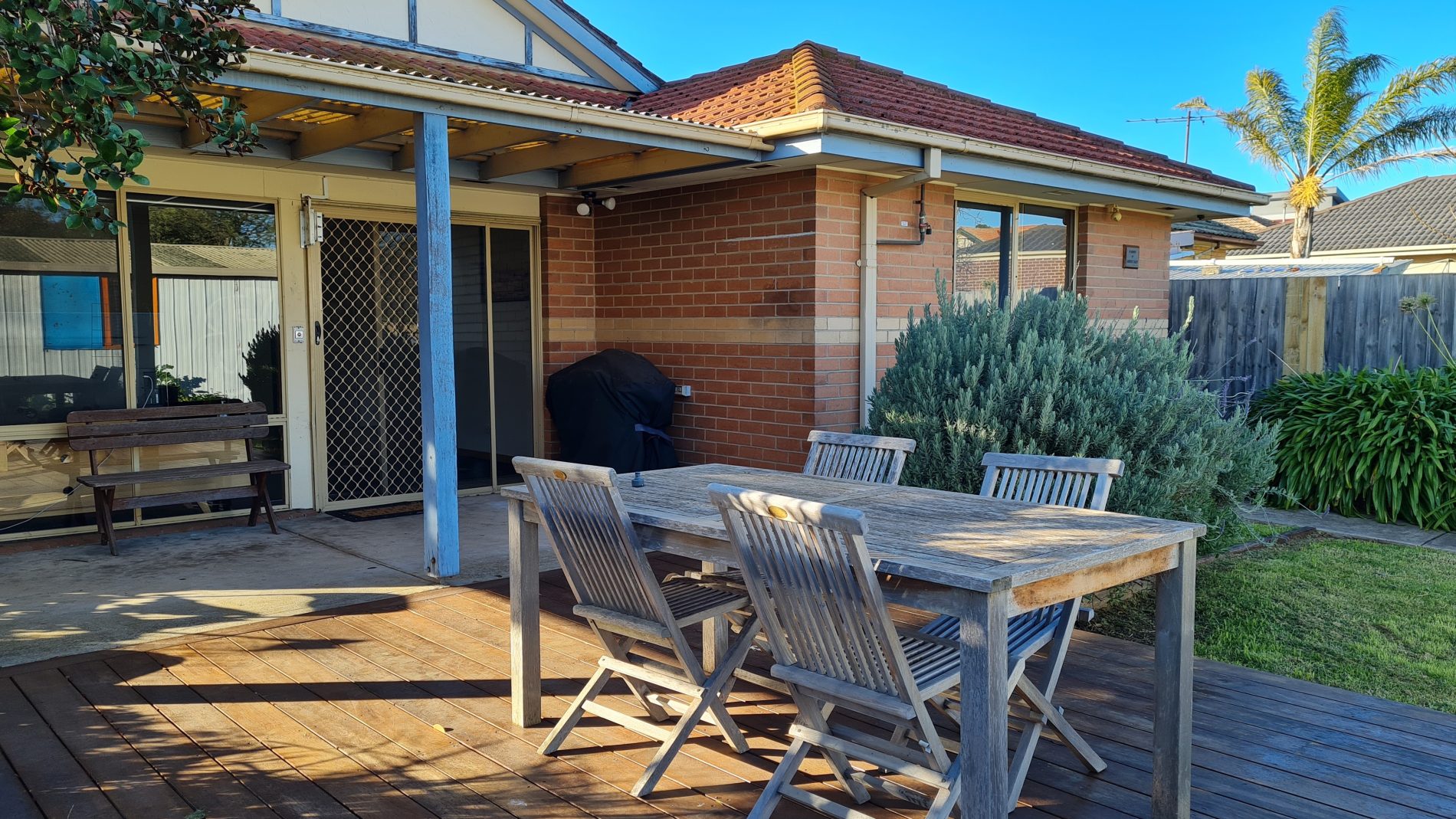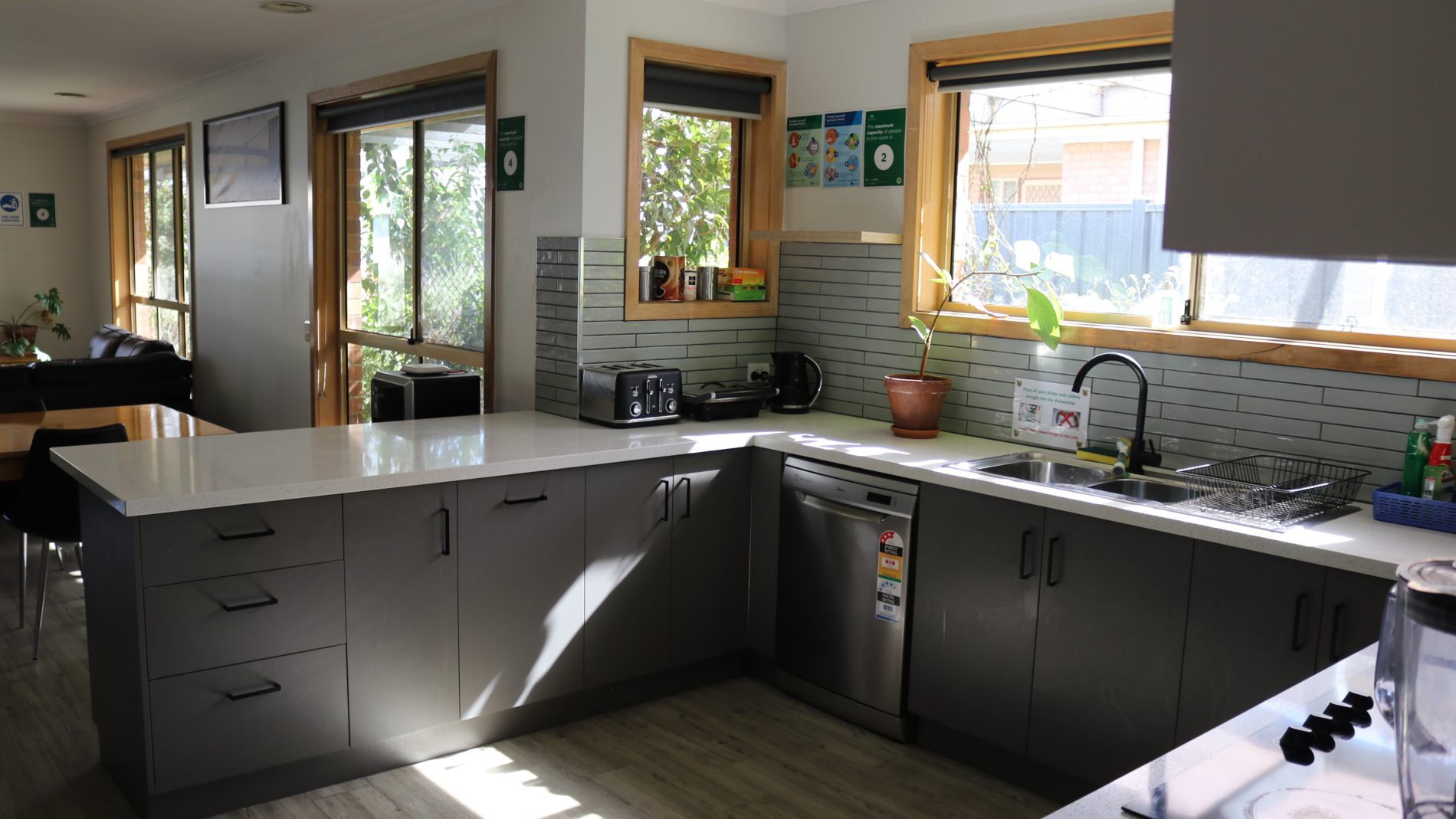Perry House provides two years’ of specialist forensic disability accommodation for up to four young men aged 17-25 of neuro-diverse background living with an intellectual disability, have involvement with the criminal justice system and are experiencing, or at risk of homelessness.
How does the program help?
Young people with intellectual disabilities face significant and complex barriers to successfully transition back to the community from custodial settings.
Perry House provides the support and stability these young people need to address the issues that contributed to their offending, and to build a new life away from crime.
The house is a safe and welcoming place with 24/7 on-site support that enables young people to:
- develop the necessary skills to live independently in the community
- address their mental and physical health issues
- engage with education, training and employment
- connect with pro-social activities within the community
- manage risk-taking or criminal behaviour
- find suitable long-term housing in the community.
We work closely with each young person to build trusting and meaningful relationships as the foundation from which to change behaviour, develop independent living skills, and achieve goals. We focus on strengths, not deficits, and promote each young person’s ability to overcome barriers to full participation in the community.
Perry House Coordinator
How does the program work?
Perry House works intensively with young people in a residential setting to reduce their risk of re-offending by addressing key risk factors, including homelessness.
The program assists residents with developing their independent living skills, establishing links into appropriate support services (in line with their NDIS plan), accessing education and employment, and secure and transition into long-term housing.
The accommodation is a large, recently renovated house, close to public transport, local amenities, and a large park. Each resident has a large private bedroom with a television, and shares a bathroom, modern kitchen, two communal living spaces, a garden and a games room.
Each resident receives a tailored individual support plan based on an extensive needs assessment process, which is conducted with the young person and their personal and professional support networks. Support plans encompass a broad range of domains, including:
- housing
- education and employment
- family support and personal networks
- health
- alcohol and other drugs
- behaviour support needs
- recreation
- legal
- living skills
- finances
Who can participate?
Young people who:
- are aged 17-25 years
- have an intellectual disability, or a cognitive impairment, which may manifest as part of an intellectual disability, acquired brain injury, or neurological impairment within the meaning of the Disability Act 2006
- are receiving support from both their NDIS Support Coordinator (for those who have an NDIS plan already in place) and their Disability Justice Coordinator
- have a history of engagement with the justice system
- are homeless or at risk of homelessness
- require support to develop independent living skills
- are able to comply with house rules with at least basic self-care and self-management skills.
Where is the program offered?
Perry House is located in the suburb of Reservoir, in Melbourne’s north. The accommodation is available to young people anywhere in Victoria, with consideration given to young people’s existing connections with the local community, to avoid further experiences of displacement.
Make a referral
Referrals to Perry House are made to the Forensic Disability State Wide Access Service, using the Specialist Forensic Disability Accommodation-specific application form.
For any general enquiries, contact Perry House directly at (03) 9460 3400. To make a referral, contact FDSAS at 1300 390 709 or forensicdisability.access@dffh.vic.gov.au





